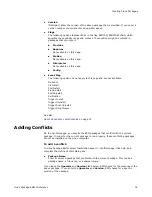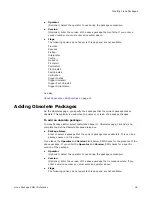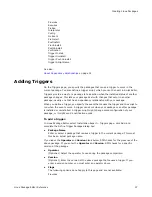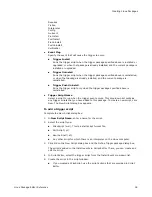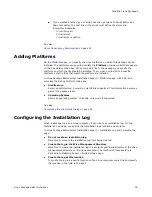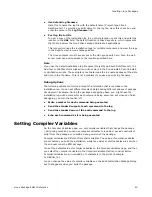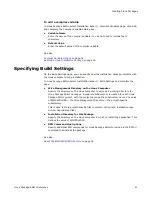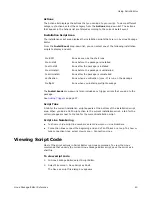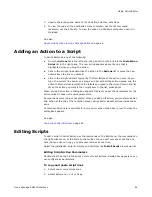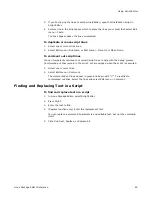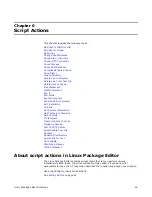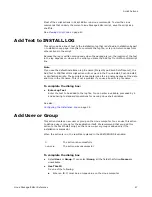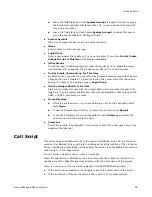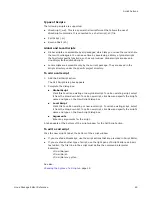
Linux Package Editor Reference
49
Script Actions
Types of Scripts
The following scripts are supported:
z
WiseScript (.wsl). This is a special shell script format that allows the use of
WiseScript commands. It is converted to a shell script (.sh) file.
z
Perl Script (.pl).
z
Bourne Shell (.sh).
Global and Local Scripts
z
Global scripts are accessible by all packages, which lets you re-use them and share
them with colleagues. You can save time by developing a library of global scripts
that perform specific functions, such as subroutines. Global scripts are saved in
LinuxProjectFolder\GlobalScripts.
z
Local scripts are accessible only by the current package. They are saved in the
scripts directory under the specific project directory.
To add a call script
1. Add the Call Script action.
The Call Script dialog box appears.
2. Complete the dialog box:
Global Script
Mark this to call an existing or new global script. To call an existing script, select
it from the drop-down list. To call a new script, click New and specify the script’s
name and type on the New Script dialog box.
Local Script
Mark this to call an existing or new local script. To call an existing script, select
it from the drop-down list. To call a new script, click New and specify the script’s
name and type on the New Script dialog box.
Arguments
Enter any arguments for the script.
A tab appears at the bottom of the script window for the Call Script action.
To edit a call script
Click the new script’s tab at the bottom of the script window.
z
If you created a WiseScript, use the script actions that are provided in Script Editor.
z
If you created another type of script, use the right pane of Script Editor as a basic
text editor. The first line in the script must define the command interpreter.
Examples:
#!/usr/bin/perl
#!/usr/bin/sh
#!/usr/bin/env python
See also:
Checking the Syntax of a Script
on page 19

